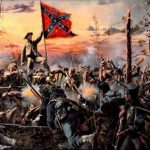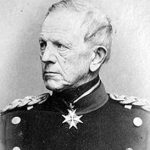Mistakes made by leaders of powerful countries have been legion throughout history. Enormous losses in the human and animal races have been the result. It is arguable that had George V of England and Kaiser Wilhelm of Germany not disliked each other, and had had more control over the ambitions of their respective political leaders, there would not have been a First World War. Again, if Blair, Aznar and Barroso had exhibited more guts on that island in the Azores, they might have persuaded George Bush Jun. to stop telling himself and them what he (and they) knew to be a lie – that Saddam was storing massively dangerous secret weapons in Iraq – and better methods than medieval ones could have been used to depose a dictator. And 100,000 Iraquies would not have died, nor nearly 4000 young servicemen and women from the USA.
Adolf Hitler was an unstable, highly intelligent (when he wanted to be) Austrian who wished to dominate Europe and if possible the world. He also wanted to avoid war with Britain and the United States, for the very good reason that no-one could begin to perceive the military power of the Americans, and that he who declares war against Great Britain is also declaring war against The Commonwealth. Britain is not merely represented by a couple of tiny islands off the coast of France, Belgium and the Low Countries. As long as they are willing, you can count on Canada, Australia and New Zealand to fight you too, rather a large slice of land on this planet when you combine these three countries. Here is how the Commonwealth of Nations came into being, and what it has achieved, not without conflict and disillusion.
It is an association of more than fifty nations, almost all of which were formerly part of The British Empire (q.v.) Each is independent in every aspect of the word, in domestic and external affairs, but for historical reasons they accept the British monarch as the symbol of the free association of member states, and as such the monarch is the Head of The Commonwealth.
The term ‘Commonwealth’ began its use after 1918, when the military aid given by the Dominions had not only helped Britain and her allies to win the war against the Kaiser’s Germany, but also enhanced the Dominions’ status.
Independence, apart from the more formal link of allegiance to the Crown, was asserted at the Imperial Conference of 1926. It then acquired legal authority by The Statute of Westminster in 1931. A first indication of the power of independent decision came in the abdication crisis (q.v.) in 1936, when the Dominions’s representatives made it quite clear to Britain’s PM (Stanley Baldwin) that they would not be prepared to accept a British monarch married to a twice-divorced American citizen. Then came 1939, when they (the Dominions) had to decide whether they wanted to support Britain in a war against Germany: as it luckily turned out, they did.
After 1945 everything changed. Churchill was old and ailing; Roosevelt actually dying. Thus Poland, Czechoslovakia and other countries that had fought with allies against Hitler, found themselves handed over to slavery under Stalin. Under the new Socialist government in London the British Empire was rapidly broken up by granting independence to India, Pakistan and Burma. The simple commonwealth became known as The Commonwealth of Nations, with its composition changed.
A few countries withdrew; Burma in 1947, and the Republic of Ireland in 1949. Pakistan left in 1972 but re-joined later. South Africa went off to seek its own destiny in 1961 (because of British hostility to the policy of apartheid), but oddly enough was officially admitted again in 1989. Fiji withdrew for ten years from 1987.
We mentioned at the beginning that Britain is small. By the early 1950s pressure was building up to disallow so much immigration from Commonwealth countries. The largest number of legal immigrants came from the West Indies, India and Pakistan. In Britain’s streets unworthy nicknames emerged, such a ‘Pakis’ for British citizens from Pakistan.
From 1962 onwards there was a danger of the Commonwealth itself breaking up, irritated by a great number of immigration restrictions, which were duly reciprocated by a lot of restrictive measures made against British business interests. Regular conferences (much encouraged by the Queen and the Duke of Edinburgh) and financial and cultural links helped maintain some form of unity among Commonwealth members. Cameroon, never (wholly) ruled by Britain, and Mozambique (no historical link with Britain) were admitted to the Commonwealth in 1995.
The Commonwealth showed its teeth in the 1980s when the Heads of Government (with the notable exception of the UK) urged the imposition of economic sanctions against South Africa as a protest against apartheid. She had left the Commonwealth in 1961, but in 1984 the ANC and Nelson Mandela won outstandingly in the country’s first multi-racial elections, and South Africa was re-admitted into the Commonwealth, where she remains. In 1995 the Heads of Government voted to expel Nigeria, after the judicial killing of minority rights activists there. Government-backed killing of Christians continues in Nigeria.










Leave A Comment